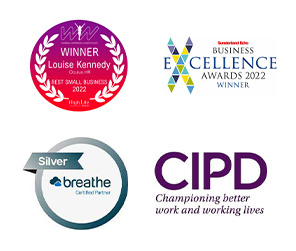November signals Men’s Health Awareness Month and the annual campaign organised by Movember is seeing some hard-hitting and shocking statistics circulating in the media. With the month dedicated to bringing awareness to a wide range of men’s health issues, the campaign attempts to tackle and reduce the stigma around talking about men’s health and wellbeing.
Proactivity is key, and employers need to accept that there is in many cases an historical reluctance for men to seek help and support. Wellbeing is a concept that at times can be banded around businesses in an attempt to tick boxes, but genuine investment in policies and procedures around men’s health and wellbeing is a two-fold approach, which impacts both employee and employer.
A joined up and proactive stance will aid in boosting employee performance, help to reduce sickness absence, and ensure employers attract the best talent as employees will know from the onset that they are valued and that support mechanisms are in place.
Communication and tone of voice are key, and employers need to ensure they have the support and signposting in place to engage male employees in health and wellbeing discussions. Experienced HR professional Louise Kennedy, Managing Director at Oculus HR commented:
“It’s so important that employers look at the bigger picture, there are many cases when health and wellbeing can be seen as a bit of a ‘vanity’ approach within businesses, but it’s a concept that needs to be rooted in the business. Failure to build this into policies and procedures can lead to a domino effect of future HR issues if left unmanaged.”
With November highlighting the importance of the campaign why not check out our five quick fire questions today to get you thinking about your current approach to men’s health and wellbeing:
- Do your male employees know about the health and wellbeing benefits that are in place, how they can interact with them, and are they applicable to the target audience?
- Do you encourage men to take time off for medical appointments and for health screening?
- Do line managers have appropriate training and the capacity to identify the tell-tale signs of poor mental and physical wellbeing, and do they know who to sign post too?
- Communication and interaction are key to spot signs – what mechanisms are in place to support remote and hybrid working employees?
- Teams work together closely and colleagues can be the first point of contact to identify changes, are staff empowered to assess risk in colleagues, and do they know who to approach with concerns?
